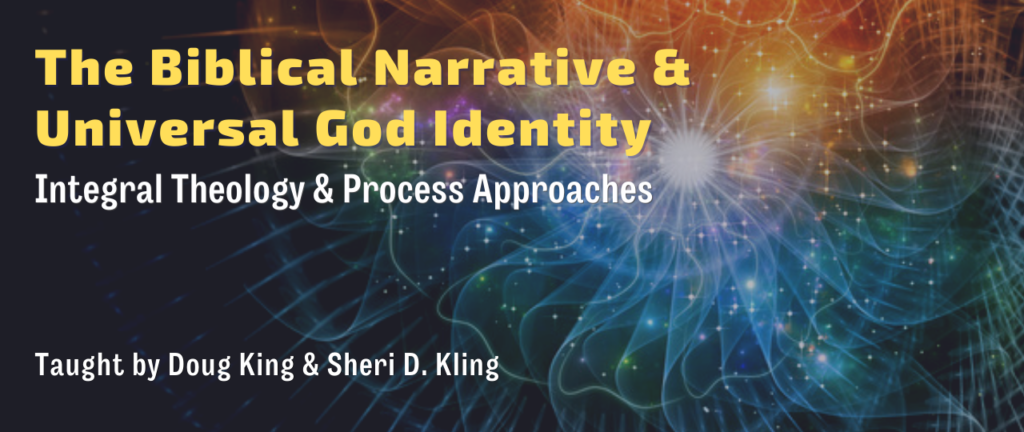The Biblical Narrative and Universal God Identity

Live Session Info
Dates: September 13, 2022 – October 18, 2022
Meeting Times: Tuesdays, 4:30 – 6:00 PM Pacific
Zoom Info: Click on the session links below to access.
In this six-session course, Doug King (founder of Presence International) and Sheri Kling (director of Process & Faith) will guide students through an exploration of integral consciousness and spiral dynamics using integral and process theologies to reveal the message of universal God identity in the Judeo-Christian biblical narrative.
DESCRIPTION
Both process thought and integral consciousness provide a developmental approach to the evolution of human consciousness. Process philosophy and theology have been used as life-giving tools in interpretation of the biblical narrative and this course will investigate the use of integral consciousness models as complementary to biblical interpretation as well. Our primary question will be whether the biblical narrative has always been evolving toward and into universal God identity. The implications of the possible answers to that question can dramatically affect the future of long held Christian views of identity. This is especially true if the biblical narrative points to something beyond separation thinking with regard to identity.
In this course, we will use models like Spiral Dynamics to trace biblical history, finding meaning both in its original setting and as a process story of the evolution of spiritual consciousness with regard to God identity. Spiral Dynamics uses a two-tier framework, and we’ll begin by seeing how it is applied to various fields of study. Next, we’ll apply this approach to the biblical narrative, examining each first-tier level or stage and comparing it to biblical history. Then we’ll look at Tier 2 and the development of integral consciousness as a unitive step. As we go, we’ll build on the principles behind the process to see how each level or stage of development produces necessary values that become part of a “transcend and include” understanding of identity. Finally, we’ll explore the implications of process or developmental models for religion itself, particularly the religion of Christianity and its future. The possibilities are literally world changing.
